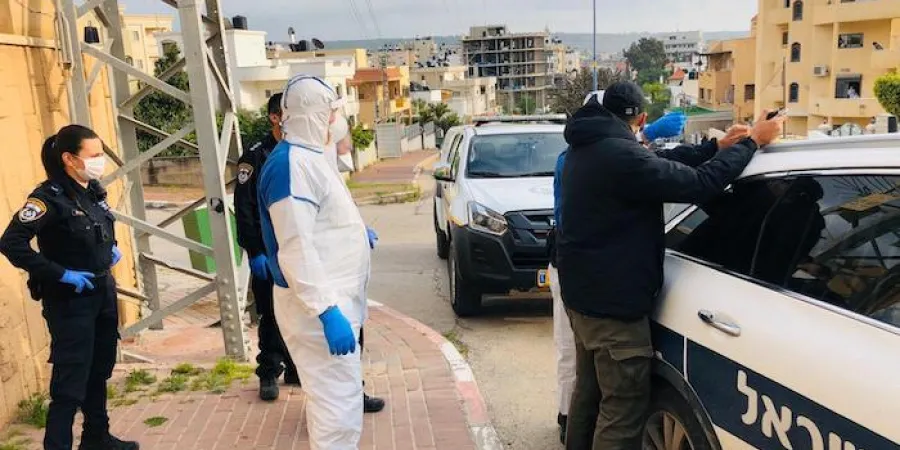Knesset Committee Rejects Extension of Police COVID-19 Surveillance Program
Although the government said the measures without a court order are necessary for the Health Ministry's fight against the spread of the coronavirus, a parliamentary oversight committee disagreed. Meanwhile, Israel continues its use of the domestic intelligence service to track confirmed carriers and identify citizens exposed to them
IsraelDefense
| 23/04/2020
Israeli police tracking of suspected or confirmed coronavirus patients via their cellphones without a court order has been suspended, as a parliamentary committee on April 22 turned down a government bill to allow the surveillance to continue.
The government had granted the police access to the cellphone data for one month. But shortly before the deadline, the Knesset's Foreign Affairs and Defense Committee rejected the government's bill for extension of the powers.
While presenting the bill at the Knesset earlier this month, Justice Minister Amir Ohana said that due to the situation in the country, such use of authority is required to help the Health Ministry fight the spread of the coronavirus.
A member of the committee, former Justice Minister Ayelet Shaked, said in a Twitter posting that the risks from the violation of privacy outweigh the benefits of continuing the police surveillance.
A committee spokesman said that during the last month, police had conducted 500 random location checks daily using a list of over 13,000 provided by the Health Ministry. Over 200 quarantine violators were said to have been arrested.
Meanwhile, Israel continues its use of the domestic intelligence service to track confirmed carriers and identify those exposed to them, a program that was approved by the country's Supreme Court in late March.
Although the government said the measures without a court order are necessary for the Health Ministry's fight against the spread of the coronavirus, a parliamentary oversight committee disagreed. Meanwhile, Israel continues its use of the domestic intelligence service to track confirmed carriers and identify citizens exposed to them
IsraelDefense
| 23/04/2020
Israeli police tracking of suspected or confirmed coronavirus patients via their cellphones without a court order has been suspended, as a parliamentary committee on April 22 turned down a government bill to allow the surveillance to continue.
The government had granted the police access to the cellphone data for one month. But shortly before the deadline, the Knesset's Foreign Affairs and Defense Committee rejected the government's bill for extension of the powers.
While presenting the bill at the Knesset earlier this month, Justice Minister Amir Ohana said that due to the situation in the country, such use of authority is required to help the Health Ministry fight the spread of the coronavirus.
A member of the committee, former Justice Minister Ayelet Shaked, said in a Twitter posting that the risks from the violation of privacy outweigh the benefits of continuing the police surveillance.
A committee spokesman said that during the last month, police had conducted 500 random location checks daily using a list of over 13,000 provided by the Health Ministry. Over 200 quarantine violators were said to have been arrested.
Meanwhile, Israel continues its use of the domestic intelligence service to track confirmed carriers and identify those exposed to them, a program that was approved by the country's Supreme Court in late March.
Rare-earth elements between the United States of America and the People's Republic of China
The Eastern seas after Afghanistan: the UK and Australia come to the rescue of the United States in a clumsy way
The failure of the great games in Afghanistan from the 19th century to the present day
Russia, Turkey and United Arab Emirates. The intelligence services organize and investigate



